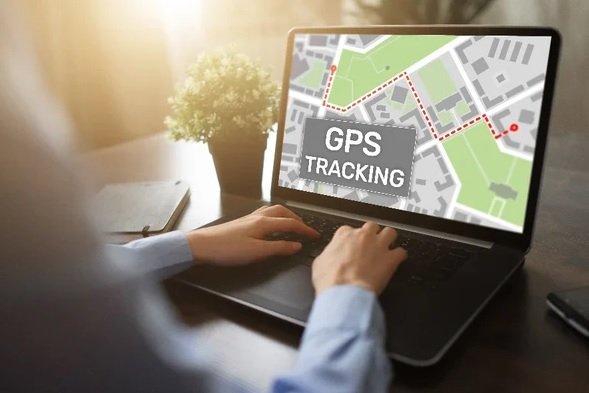In the ever-evolving landscape of modern logistics, businesses and organizations are constantly seeking innovative ways to improve operational efficiency, enhance safety, and reduce costs. Among the most transformative tools available is the GPS fleet tracker. These advanced systems have revolutionized fleet management, offering real-time visibility into the location, performance, and behavior of vehicles in a fleet. In this article, we will delve into the world of GPS fleet trackers, exploring their capabilities, benefits, and the profound impact they have on fleet-based operations.
Understanding GPS Fleet Trackers
A GPS fleet tracker is sophisticated, web-based systems that utilize Global Positioning System (GPS) technology to monitor the movements, location, and activities of vehicles within a fleet. These systems typically consist of a combination of hardware and software components that work together to provide valuable data and insights to fleet managers and operators.
Key Components of GPS Fleet Trackers:
GPS Receiver: This component is installed in each vehicle and uses satellite signals to determine its precise location. It provides latitude, longitude, and altitude data.
Telematics Device: Telematics devices collect and transmit data, including location, speed, fuel consumption, engine diagnostics, and more, to a central server.
Server and Software: The collected data is processed and analyzed by specialized software, which can be accessed by fleet managers and operators through a user-friendly interface.
Benefits of GPS Fleet Trackers
GPS fleet trackers offer a wide range of benefits that significantly impact fleet-based businesses across various industries. Here are some of the most notable advantages:
Real-Time Vehicle Location: Fleet managers can monitor the exact location of each vehicle in real-time. This feature helps optimize routing, improve response times, and enhances overall operational efficiency.
Route Optimization: GPS fleet trackers provide route planning and optimization tools that reduce fuel consumption, vehicle wear and tear, and travel time. This not only saves money but also reduces the environmental impact of the fleet.
Enhanced Safety: Improved driver behavior monitoring allows fleet managers to address unsafe driving habits promptly. This proactive approach can reduce accidents, minimize liability, and enhance overall safety.
Fuel Efficiency: By analyzing data on vehicle speed, idling time, and other factors, GPS fleet trackers can help minimize fuel consumption and reduce operational costs.
Maintenance Alerts: The system can send automated maintenance alerts based on engine diagnostics, reducing the risk of vehicle breakdowns and extending the lifespan of the fleet.
Asset Security: GPS trackers help in the event of vehicle theft by providing real-time location data to aid in recovery. Some systems even allow for remote vehicle shutdown.
Driver Accountability: The data generated by GPS fleet trackers can be used to evaluate driver performance, ensuring accountability and adherence to company policies.
Customer Satisfaction: Accurate ETAs, improved delivery times, and transparent tracking information enhance customer satisfaction, which is crucial in competitive markets.
Environmental Responsibility: By optimizing routes and reducing fuel consumption, GPS fleet trackers contribute to a reduction in the carbon footprint of fleet operations.
Use Cases for GPS Fleet Trackers
GPS fleet trackers are employed across a wide range of industries, each with unique requirements and use cases. Some of the most common applications include:
Delivery and Logistics: Fleet trackers help optimize routes, reduce delivery times, and enhance customer service in the delivery industry.
Construction and Heavy Equipment: In the construction sector, GPS fleet trackers can monitor the location and status of construction vehicles and equipment.
Public Transportation: Public transportation agencies use GPS fleet trackers to provide real-time information to passengers and optimize routes.
Emergency Services: Police, fire, and emergency medical services rely on fleet trackers to ensure timely responses to emergencies.
Agriculture: In agriculture, GPS trackers help optimize farming operations and monitor the use of agricultural machinery.
Trucking and Transportation: Long-haul trucking companies use fleet trackers to ensure efficient logistics, manage driver behavior, and optimize fuel usage.
Challenges and Considerations
While GPS fleet trackers offer numerous advantages, there are also some challenges and considerations that fleet managers and operators should keep in mind:
Initial Investment: The cost of purchasing and implementing GPS fleet trackers can be a significant upfront investment. However, the return on investment through operational savings often justifies the expense.
Data Privacy: GPS fleet trackers collect sensitive data about drivers and their movements. Businesses must carefully consider data privacy regulations and implement responsible data handling practices.
Integration: Integration with existing fleet management systems, such as maintenance and dispatch systems, can be complex and may require additional investments in software and hardware.
Training: Fleet managers and operators need to be trained to effectively utilize GPS fleet trackers and interpret the data provided.
Change Management: Implementing new technology can face resistance from drivers and employees, necessitating effective change management strategies.
Future Trends in GPS Fleet Tracking
The future of GPS fleet tracking is characterized by ongoing technological advancements, expanded functionality, and integration with other emerging technologies:
Telematics and IoT Integration: The integration of Internet of Things (IoT) sensors with GPS fleet tracking will provide even more data on vehicle performance, cargo conditions, and driver behavior.
Predictive Analytics: Advanced data analytics and artificial intelligence will enable predictive maintenance and improved route planning based on historical data.
Connected Vehicles: An increasing number of vehicles will come equipped with built-in GPS tracking and telematics capabilities.
Sustainability Emphasis: As environmental concerns continue to grow, GPS fleet tracking systems will play a key role in helping fleets reduce their carbon footprint.
Conclusion
GPS fleet trackers have become indispensable tools for fleet-based businesses and organizations. They offer real-time visibility, efficiency gains, cost savings, enhanced safety, and a competitive edge in the modern logistics landscape. As technology continues to evolve, the role of GPS fleet trackers will expand, offering even more comprehensive and integrated solutions for businesses seeking to maximize their operational potential while reducing their environmental impact.





